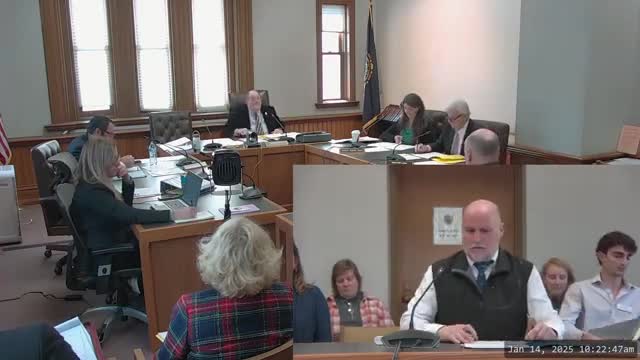Sponsor seeks to narrow electioneering ban after 2018 U.S. Supreme Court ruling; moderators and registrars urge caution
Get AI-powered insights, summaries, and transcripts
Subscribe
Summary
A bill introduced by Senator Tim Blank would remove "articles of clothing" from the statutory definition of electioneering inside polling places to align state law with the U.S. Supreme Court's 2018 decision; moderators and association representatives warned of operational difficulties and urged careful statutory drafting.
Senator Tim Blank, prime sponsor, told the committee he intends to amend state election law to exclude "articles of clothing" from the definition of electioneering inside polling places, citing the U.S. Supreme Court's June 14, 2018 decision in Minnesota Voters Alliance v. Mansky and earlier precedent distinguishing active campaign conduct at polling places.
"This bill seeks to strike the word 'articles of clothing' from the distribution piece to allow, again, if a person's walking in with a Kamala Harris shirt or a Trump shirt into the polling place... that is not electioneering," Senator Tim Blank said, summarizing his intent to align state statute with the high court's holding.
Town moderators and election officials urged caution. Linda Callaway, town moderator of New Durham, said the election environment should remain a neutral space and questioned whether allowing campaign clothing inside polling places would erode the secrecy and nonpartisan atmosphere voters expect. "The electioneering free zone both inside and outside while entering or exiting from the polling place is to allow people to vote unencumbered by unwanted opinions of their fellow voters," she told the committee.
Municipal moderators and some legislators described practical ambiguities the proposed change could create, including whether volunteers or poll workers would be treated differently and how to police duration or repeated presence near voting areas. Several speakers referenced the U.S. Supreme Court guidance: Senator Blank cited the 2018 Mansky decision and earlier Burson precedent as relevant to delineating active campaigning from passive attire.
Deputy Secretary of State Erin Hennessey warned that changing the statutory definition could have broader implications because the term "electioneering" is used in several places across RSA election statutes, and she recommended the sponsor coordinate proposed amendments with the Attorney General's Office to avoid unintended consequences.
Why it matters: The change would affect what voters and poll workers may wear inside polling places statewide and could require adjustments to moderator training and clerk guidance to reconcile state law with federal constitutional standards.
Next steps: Senator Blank said he would work with the Attorney General's Office on precise amendment language; the committee recorded public testimony but no vote in the transcript.
